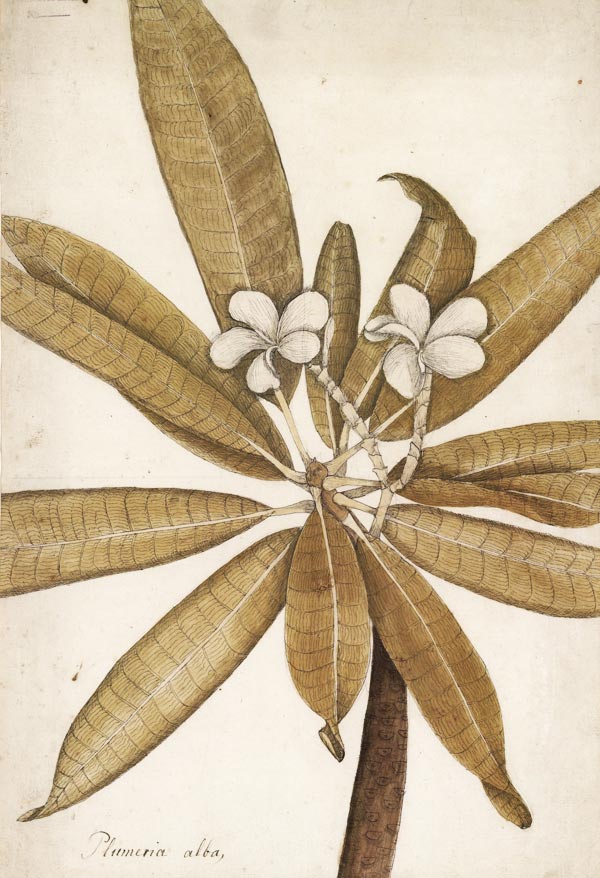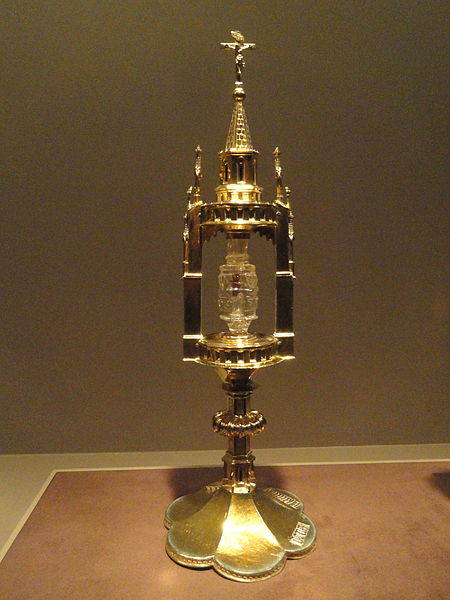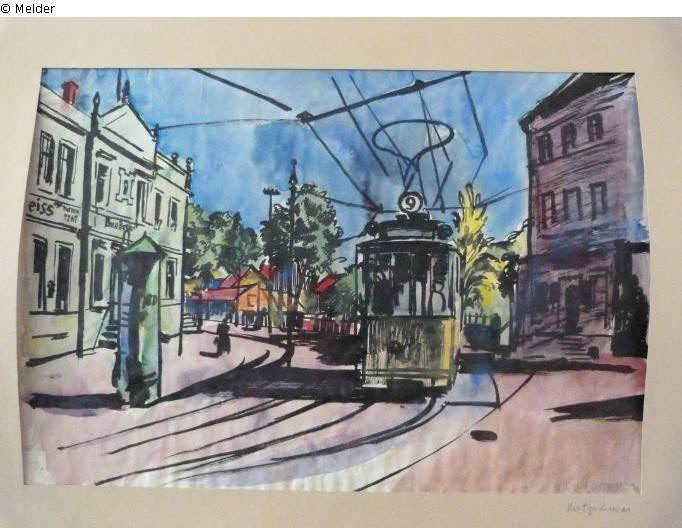The Norton Simon Museum in Pasadena’s efforts to bring an end to the claim by Marei von Saher to Lucas Cranach the Elder’s Adam and Eve failed yesterday, as the United States Supreme Court declined to hear the museum’s appeal from the decision last year by the Ninth Circuit Court of Appeals that restored the claims. The Supreme Court denied what is called a writ of certiorari, which is a discretionary appeal from a lower court. The high Court can accept cases on appeal from final judgments (as would be the case had the museum prevailed) or, as here, what are called interlocutory appeals—appeals of matters still in process. The Ninth Circuit decision revived Von Saher’s case and sent them back to the District Court for litigation, and the Norton Simon’s petition asked the Supreme Court to intervene and put an end to it. The overwhelming proportion of certiorari petitions are denied, interlocutory appeals even more so (courts favor hearing appeals of final judgments to avoid piecemeal adjudications). This is the second certiorari petition in the case: in 2011, Von Saher was on the losing end of a petition when her case had been dismissed under an earlier version of California’s statute of limitations.
Supreme Court Declines to Hear Norton Simon Intermediate Appeal, Von Saher Claim Returns to Trial Court
Topics: Legislation, Dutch Secretary for Education Culture and Science, Norton Simon Museum, Alois Miedl, Lilly Cassirer, Norton Simon Art Foundation, Rue Saint-Honoré après-midi effet de pluie, Jacques Goudstikker, George Stroganoff-Scherbatoff, Hermann Goring, Restitution, Marei Von Saher, Jr., World War II, act of state doctrine, Cassirer v. Kingdom of Spain, Lucas Cranach the Elder, Camille Pissarro, Soviet Union, foreign affairs doctrine, California Section 354.3 of Code of Civil Procedur, Von Saher v. Norton Simon Museum of Art
Vienna Natural History Museum Restitutes Botanical Drawings to Nazi Victims' Heirs, Acknowledges the Too-Often-Ignored Reality of Persecution and Coerced Sales
Vienna’s Natural History Museum (Naturhistorisches Museum) has restituted 177 botanical drawings and prints to the heirs of Dr. Ernst Moritz Kronfeld. The restitution, while somewhat delayed following a 2011 recommendation by Austria’s Advisory Council under the country’s Law for the Restitution of Artworks from the Austrian National Museums (Bundesgesetz über die Rückgabe von Kunstgegenstände aus den Österreichischen Bundesmuseen), highlights the increasing sophistication of that Advisory Council, particularly compared to recent steps backward by the Limbach Commission in Germany. Austria, once a lightening rod for criticism about confronting wartime and Nazi provenance issues, returned these drawings because of the clear problems with trying to portray any 1941 conveyance by a Viennese Jew as an arms’ length transaction—even without direct evidence of coercion. Just as importantly, it brushed away the defense that the drawings had been acquired in good faith as an excuse to continued possession, a dramatic change from the perspective usually taken by civil law countries.
Topics: Theresienstadt, Lvov, Nationalbibliothek, Galicia, Law for the Restitution of Artworks from the Austr, Germany, Nuremberg, Nazi Victims, Treblinka, Dr. Rudolf Engel, Naturhistorisches Museum, Henry David Thoreau, Hermann Goring, Hitler Youth, Mario Lanzer, Gauleiter, Dr. Ernst Moritz Kronfeld, National Library, Portrait of Amalie Zuckerkandl, Bundesgesetz über die Rückgabe von Kunstgegenständ, Restitution, Clara Levy, Hapsburg, Luxembourg, Vienna Natural History Museum, Ryk van der Schot, Empress Maria Theresia, World War II, The Three Graces, Franz Stefan von Lothringen, Lemberg, Ukraine, Nikolaus Joseph von Jacquinn, Rosalia Kronfeld, Austro-Hungarian empire, Drei Grazien, Lovis Corinth, Museums, Israeli Cultural Society, Austria’s Advisory Council, Gustav Klimt, Schönbrunn, Vienna, Anschluss, Welfenschatz, Baldur von Schirach, Limbach Commission
"Fight Over Paintings Looted by Nazis May Finally Get Trial Thanks to 9th Cir." Published by Bloomberg BNA
I am quoted at length in an article about the recent Von Saher decision: "Fight Over Paintings Looted by Nazis May Finally Get Trial Thanks to 9th Cir." by Nicholas Datlowe, published by Bloomberg BNA’s United States Law Week. The article covers the overall background and importance of the decision, and has quotes from the plaintiffs’ attorneys who now can return to the trial court to try to press their claim (and respond to the likely forthcoming act of state defenses, as discussed here previously). It also analyzes the dissent in the June 6, 2014 opinion by Judge Kim McLane Wardlaw, who would have upheld the trial court dismissal under the foreign affairs doctrine. 
Topics: Bloomberg BNA, 82 U.S.L.W. 1944, Dutch Secretary for Education Culture and Science, Norton Simon Museum, Alois Miedl, Lilly Cassirer, Norton Simon Art Foundation, Rue Saint-Honoré après-midi effet de pluie, Jacques Goudstikker, Howard N. Spiegler, Fred Anthony Rowley, George Stroganoff-Scherbatoff, Hermann Goring, Harry Pregerson, Restitution, Marei Von Saher, Jr., World War II, act of state doctrine, Cassirer v. Kingdom of Spain, United States Law Week, Lucas Cranach the Elder, Camille Pissarro, Dorothy Wright Nelson, http://www.bna.com., The Bureau of National Affairs Inc., Kim McLane Wardlaw, Soviet Union, foreign affairs doctrine, California Section 354.3 of Code of Civil Procedur, Von Saher v. Norton Simon Museum of Art
Restitution Claims for Cranach Paintings in the Norton Simon Museum Revived by Ninth Circuit, Case Now Hinges on Act of State Doctrine
The U.S. Court of Appeals for the Ninth Circuit restored on June 6, 2014 the claims by Marei von Saher against the Norton Simon Museum in Pasadena for the paintings Adam and Eve by Lucas Cranach the Elder. The appeals court followed its decision in Cassirer v. Kingdom of Spain in December of last year, concerning the painting Rue Saint-Honoré, après-midi, effet de pluie by Camille Pissarro that was owned at one time by Lilly Cassirer, a Jewish collector who fled Germany in 1939. While the panel of judges vacated the Von Saher dismissal that was premised on the idea that California’s revised statute of limitations was unconstitutional (instead finding that the law and claims withstand that scrutiny), the divided 2-1 panel sent the case back to the district court to determine if the claims were nonetheless barred under the “act of state doctrine”. One dissenting judge would have upheld the dismissal on the grounds that the case would call into question Von Saher’s compensation from the Dutch government such that that would violate the foreign affairs doctrine. That split on the act of state doctrine partially answers the lingering question of why Von Saher, argued the same day as Cassirer concerning the same California law, had gone undecided six months after Cassirer was resolved.
Topics: Dutch Secretary for Education Culture and Science, Norton Simon Museum, Alois Miedl, Lilly Cassirer, Norton Simon Art Foundation, Rue Saint-Honoré après-midi effet de pluie, Jacques Goudstikker, Howard N. Spiegler, Fred Anthony Rowley, George Stroganoff-Scherbatoff, Hermann Goring, Harry Pregerson, Restitution, Marei Von Saher, Jr., World War II, Foreign Sovereign Immunities, act of state doctrine, Cassirer v. Kingdom of Spain, Lucas Cranach the Elder, Camille Pissarro, Dorothy Wright Nelson, http://www.bna.com., Kim McLane Wardlaw, Soviet Union, foreign affairs doctrine, California Section 354.3 of Code of Civil Procedur, Von Saher v. Norton Simon Museum of Art
Limbach Advisory Commission Recommends Against German Restitution of “Guelph Treasure,” Focuses on Terms of 1929 Agreement for Intended Sale
One of the issues exposed and exacerbated by the ongoing Gurlitt collection stalemate is the question of Germany’s restitution procedures with respect to art. As the Bavarian legislative proposal to abolish the statute of limitations for claims against bad-faith acquirers is considered by the Bundestag, the “German Advisory Commission for the Return of Cultural Property Seized as a Result of Nazi Persecution, Especially Jewish Property” has issued a decision over what has become known as the “Guelph Treasure” (Welfenschatz) in the collection of the Stiftung Preussischer Kulturbesitz (SPK), the Prussian Cultural Heritage Foundation. The March 20, 2014 opinion (available, so far as I know, only in German at this point at www.lostart.de) underscores the issues around claims of sales under duress, and the appropriate present-day procedural remedy. Readers should also brush up on their medieval German history to keep up.
Topics: Holy Roman Emperor Otto IV, German Supreme Commercial Court, Holy Roman Empire, Bundeshandelsgericht, German Supreme Constitutional Court, Z.M. Hackenbroch, Karl Blechen, Duchy of Brunswick and Lüneburg, Niedersachsen, Karl Ernst Baumann, Act of State, Kingdom of Hanover. Königreich Hannover, Dr Alexander Lewin, Prussia, Lower Saxony, Anselm Feuerbach, Gurlitt Collection, Foreign Sovereign Immunities Act, Preussen, Hans Sachs, German Advisory Commission for the Return of Cultu, Hessen, Fogg Art Museum, Congress of Vienna, Julius and Clara Freund, Kurhannover, Dresdner Bank, Hermann Goring, Austrian Supreme Court, Johann J. August von der Embde, House of Welf, Stiftung Preussischer Kulturbesitz, Wilhelm Leibl, Portrait of Amalie Zuckerkandl, Braunschweig-Lüneburg, Harvard, Portrait der Familie von Dithfurth, Gurlitt, Restitution, George I, J.S. Goldschmidt, World War II, Peasant Girl without a Hat and with a White Headcl, Queen Victoria, Prussian Cultural Heritage Foundation, Art Institute of Chicago, Kurfürsten, Jutta Limbach, www.lostart.de, Soviet Union, Gustav Klimt, Bundesverfassungsgericht, Welfenschatz, Limbach Commission, I. Rosenbaum, Electors
Gurlitt Taskforce Announces Plan to Post 590 More Works. Choice of Law, Procedure, and Venue for Claims Up in the Air
Ingeborg Berggreen-Merkel, leader of the newly formed federal “Schwabing Art Find” taskforce, announced plans to release information about 590 additional works found in the apartment of Cornelius Gurlitt, after the posting earlier this week of 25 works at www.lostart.de. Meanwhile, the heirs of Max Ernst have publicly disclosed (through their attorney Jürgen Wilhelm in Cologne) their claim to certain of the works in the Gurlitt find. The federal authorities appear to be gaining the upper hand for disclosure against the tax investigators in Bavaria who initially seized the collection, which was not a foregone conclusion.
Topics: Cologne, veschollene Kunst, the Lion Tamer, Lempertz, Cornelius Gurlitt, Schwabinger Kunstfund. Kunstfund München, Max Liebermann, Köln, Gurlitt Collection, Foreign Sovereign Immunities Act, Hildebrand Gurlit, Entartete Kunst, Nazis, Ingeborg Berggreen-Merkel, Hermann Goring, Michael Hulton, FSIA, Gurlitt, Restitution, conversion, Looted Art, World War II, degenerate art, Altmann v. Republic of Austria, Löwenbändiger, Raubkunst, Alfred Flechteim, Jürgen Wilhelm, Max Ernst
Dispute of Fact or Statement of Foreign Policy? Ninth Circuit Takes up the Question of U.S. Courts’ Role in Assessing Foreign Art Restitution Procedures
The U.S. Court of Appeals for the Ninth Circuit heard oral argument last week in two high-profile World War II art restitution claims, Von Saher v. Norton Simon Museum of Art, and Cassirer v. Kingdom of Spain. The Supreme Court’s previous decision not to hear earlier appeals of those cases with regard to statutes of limitations has had a broad effect for years now, and last year's dismissal was widely observed. At its core, the Von Saher case poses a direct question: is a claim that alleges procedural unfairness with the restitution claims process in another country after World War II (i.e., the Netherlands) so wrapped up in the State Department’s foreign policy apparatus that courts cannot intervene (requiring dismissal at the outset of the case), or is that fairness a question of fact that entitles the plaintiff to survive the threshold analysis and proceed to discovery or a trial? Although comments from the bench are never a predictor of the results, the spirited argument underscored the importance of the two cases to the future of restitution claims in federal courts, and whether the restitution question is incompatible with the separation of powers in the U.S. government.
Topics: Dutch Secretary for Education Culture and Science, Norton Simon Museum, Alois Miedl, Lilly Cassirer, Norton Simon Art Foundation, Rue Saint-Honoré après-midi effet de pluie, Jacques Goudstikker, Howard N. Spiegler, Fred Anthony Rowley, George Stroganoff-Scherbatoff, Hermann Goring, Harry Pregerson, Marei Von Saher, Jr., Cassirer v. Kingdom of Spain, Lucas Cranach the Elder, Camille Pissarro, Dorothy Wright Nelson, Kim McLane Wardlaw, Soviet Union, California Section 354.3 of Code of Civil Procedur, Von Saher v. Norton Simon Museum of Art
Lawsuit Against Sotheby’s for Nazi-tainted Art Sale Dismissed; Why it Was Filed in California at all Remains Unclear
A federal court in California has dismissed a claim by a buyer against Sotheby’s that alleged that the auction house sold him a work whose title was clouded because Hermann Göring had once owned it. What seemed liked a interesting new theory of liability was dismissed because the buyer had agreed in advance to litigate any disputes from the sale in the United Kingdom. It is somewhat surprising that the buyer even tried.
Topics: provenance, Louis-Michel van Loo, Auctions, Nazi, California Consumers Legal Remedies Act, Christie's, Hermann Goring, Collections, Restitution, section 1750 of the California Civil Code, Allegorical Portrait of a Lady as Diana Wounded by, Sotheby's
Commentary Takes Shape on S.B. 2212, the Foreign Cultural Exchange Jurisdictional Immunity Clarification Act
It’s been a few weeks since the House passed the Foreign Cultural Exchange Jurisdictional Immunity Clarification Act (H.R. 4086) and sent it on to the Senate for consideration as S.B. 2212. It has bipartisan sponsorship there (Dianne Feinstein and Orrin Hatch), but no word yet on when it will be put to a vote.
Topics: Girolamo Romano, Dianne Feinstein, Nazi-looted art, Foreign Sovereign Immunities Act, 28 U.S.C. § 1603, 22 U.S.C. § 2459, Christ Carrying the Cross Dragged by a Rogue, Hermann Goring, Collections, FSIA, Restitution, 19 U.S.C. § 1595a, Schneerson library, Orrin Hatch, Senate Bill 2212, World War II, IFSA, Foreign Sovereign Immunities, Portrait of Wally, Immunity from Seizure Act, Customs, Chabad, Foreign Cultural Exchange Jurisdictional Immunity





